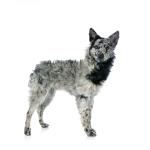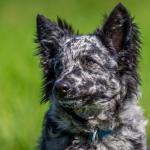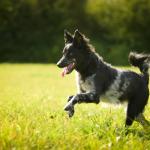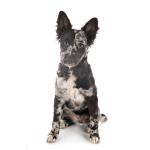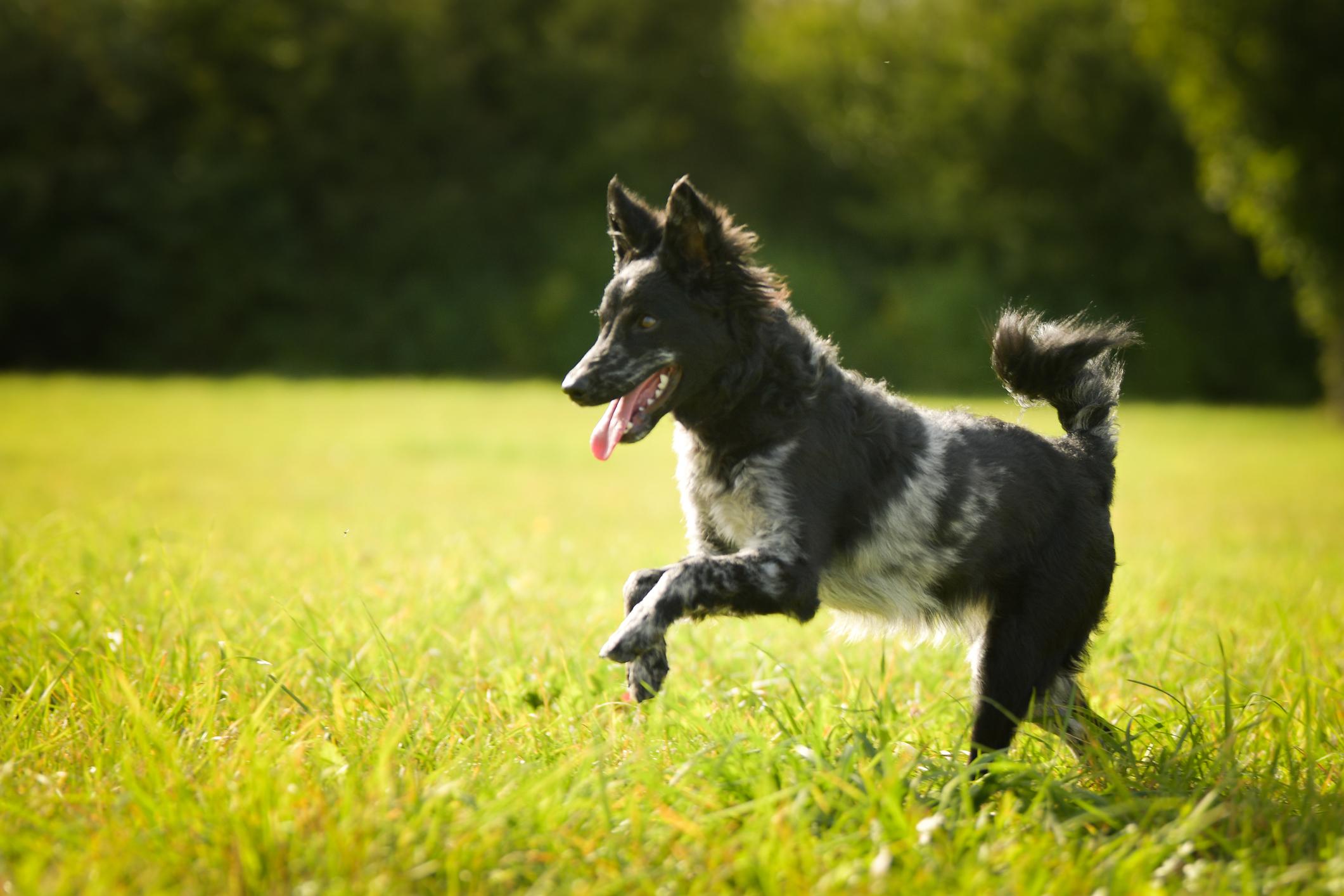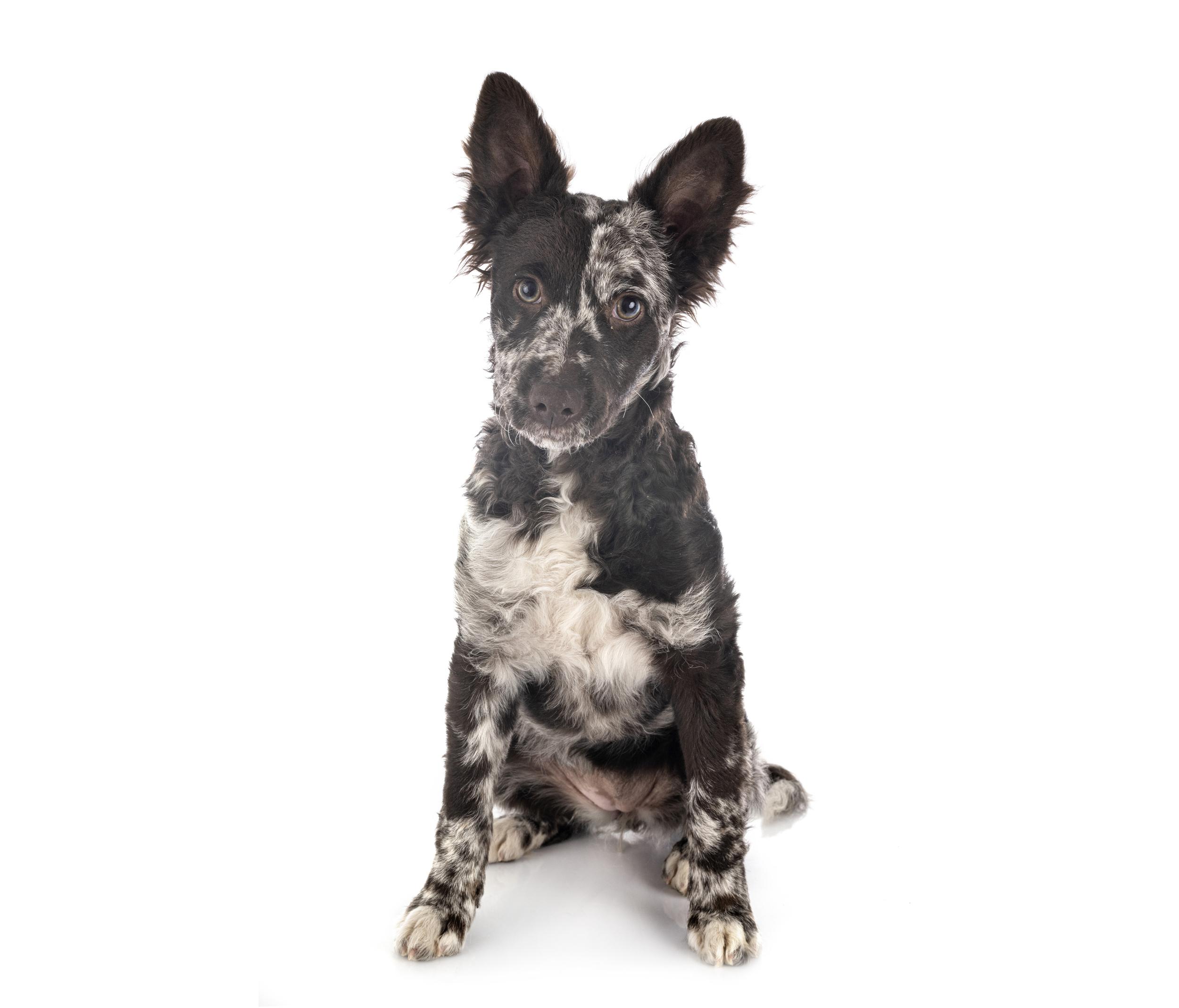Mudi Dog
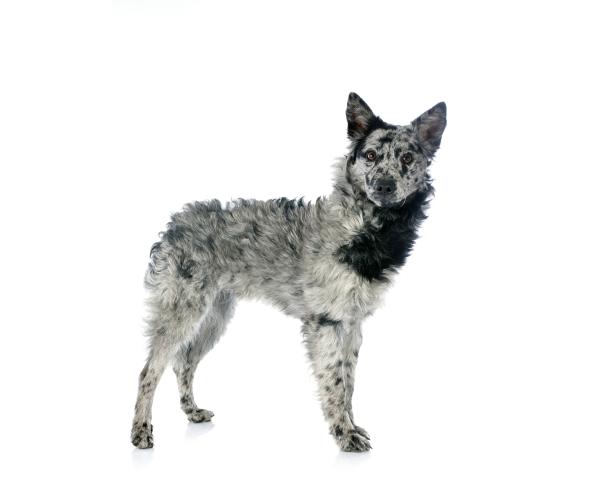
The Mudi is a dog breed native to Hungary that has traditionally been used for herding cattle. Their great intelligence and ability to adapt have allowed these dogs to be used in different tasks and disciplines over the years. However, their populations in the world are scarce and they are a difficult breed to find outside their native country.
If you want to know more about the characteristics of the Mudi dog breed, we recommend that you read the following AnimalWised breed file in which we will talk about its origin, its character, care and possible health problems.
- Europe
- Hungary
- Group I
- 5-14
- 14-18
- 18-22
- 22-27
- 27-31
- More than 31
- 2-7
- 7-22
- 22-55
- 55-100
- 100-220
- 8-10
- 10-12
- 12-14
- 15-20
- Low
- Meidum
- High
Origin of the mudi dog
The Mudi is a herding dog originally from Hungary that emerged between the 18th and 19th centuries. Unlike other breeds that have been specially created by humans, the Mudi appears to have evolved naturally from crosses between Spitz-type dogs and other Hungarian breeds such as the Puli or Pumi dog breed.
The breed was on the verge of extinction during World War II. Thanks to the great work carried out by the conservationists of this breed, the Mudi has survived to the present day.
The International Canine Federation (FCI) first recognized the breed in 1966. This was followed by the American Kennel Club and the United Kennel Club, but not until 2004 and 2006, respectively. Currently, the number of specimens of this breed is small. It is estimated there are only a few thousand Mudis left in the world, with Hungary being the country with the largest population. Other countries with small Mudi populations include Finland, the USA and Canada.
Learn more about the Mudi and their national cousins with our article on Hungarian dog breeds.
Mudi dog characteristics
Within the breed standard of the Mudi, the following anatomical characteristics stand out:
- They are a medium sized dog. Females weigh between 8–11 kg (18–24 lb) and have a height of between 8–11 kg (18–24 lb), while males weigh between 11–13 kg (24–29 lb) and measure between 41–47 cm (16–19 in).
- The head is wedge-shaped and has a slightly marked stop (naso-frontal depression).
- Their facial expression is that of an alert, energetic and intelligent animal. The eyes are usually dark in color and have an oblique position, which gives a somewhat defiant look to their gaze.
- The ears are triangular and set high. Mudi dogs always keep their ears erect and respond to stimuli by moving them in a very lively way.
- The tail has a mid-height insertion At rest it hangs down to the hocks, while it takes a sickle-like formation when alert.
- As for the coat, the head and the front of the limbs are covered with short, smooth hair, while the rest of the body has long fur with marked waves or slight curls.
Mudi dog coat colors
The Mudi's coat can have different base colors:
- Bay
- Black
- Merle
- Brown
- White
White patches may appear on the chest or paw areas. Find out about other dogs with wavy hair with our article on curly-haired dog breeds.
Mudi dog temperament
The Mudi is a dog with a great capacity for learning and a lively, courageous and alert temperament. They also stand out for easily adapting to different environments and tasks. All of these characteristics make the Mudi a tremendously versatile breed. As we have already mentioned, they have traditionally been used as a type of herding dog for both sheep and large animals. However, their innumerable capacities and abilities have allowed the Mudi to also be used for other activities such as guarding and defense or drug detection.
They are also a great companion animal due to their stable and cheerful temperament. The Mudi is a very sociable animal that enjoys family life and usually has a good relationship both with children and other animals. In general, they adapt easily to life inside the home, although it is important they have access to a patio or garden where they can play and entertain themselves.
One point to keep in mind is that they are usually quite a vocal dog. Due to their origins as a shepherd dog, their barking can be somewhat annoying for some guardians. Sometimes their territorial instinct can generate conflicts with other dogs. However, proper education and socialization from an early age will prevent these problems.
Mudi dog care
The Mudi is an easy to care for dog breed that does not have very specific demands. As with any other dog, they require some basic care to stay physically and mentally healthy:
- Feeding: regardless of whether they are fed kibble or a homemade food, Mudis should be fed a high quality, healthy diet tailored to their age and activity level. Check out our guide to the best diet for dogs for some general information on what to feed a Mudi dog.
- Exercise: although they are animals that adapt easily to life inside homes, they need to release their energy daily to stay healthy and balanced. It is best if they have a patio or garden where they can relax. They also need at least one long walk a day to satisfy their physical, mental and social needs.
- Grooming: in terms of hygiene and brushing, they are not particularly demanding animals. A weekly brushing and a bath when necessary (approximately once a month) will be enough to keep their coat strong and shiny. It is also important to maintain good ear hygiene, trim their nails regularly and monitor the possible presence of external parasites in the fur.
Mudi dog education and training
Like any breed, the Mudi must receive proper education and socialization from an early age in order to avoid behavioral problems with people and other animals. The Mudi is an extremely intelligent breed. Although they can be somewhat stubborn at times, they are usually easy to train and eager to be put to work. To obtain the expected results and not disturb their well-being, it is essential to use training techniques that respect the animal, such as those that use positive reinforcement and reject punishment or any type of violence.
In general, the Mudis are very active dogs, both physically and mentally. This makes them excellent candidates for being used in dog agility exercises or other canine sports. This type of training not only reinforces and consolidates the ties between the guardians and their animals, but also helps to use up part of their energy.
Mudi dog health
The Mudi is generally considered a healthy breed of dog. The fact that it arose naturally, without human intervention, makes it less predisposed to certain hereditary pathologies than other breeds. However, there are some diseases that tend to occur with some frequency in these dogs. In particular, we should monitor them for signs of the following:
- Hip dysplasia
- Elbow dysplasia
- Patella dislocation
- Cataracts
- Epilepsy
As with any dog breed, we must carry out the proper vaccination and deworming schedules. These types of preventive medicine will help avoid diseases and parasites which can harm the health of any dog.
Where to adopt a Mudi dog
As we have already mentioned, the Mudi is a dog rarely found outside of its native Hungary. For this reason, it can be somewhat complicated to find a specimen of this breed in the animal protection associations of other countries.
If you are thinking of including a Mudi in your family, we recommend you contact the clubs of this breed or your local canine society. They can guide you in the search for your future companion. In any case, remember that breed is not the most important aspect when adopting a dog into your family. Ensuring you are able to meet the responsibility of their care and they will be suitable for your lifestyle are much more important.
Mudi Dog photos
